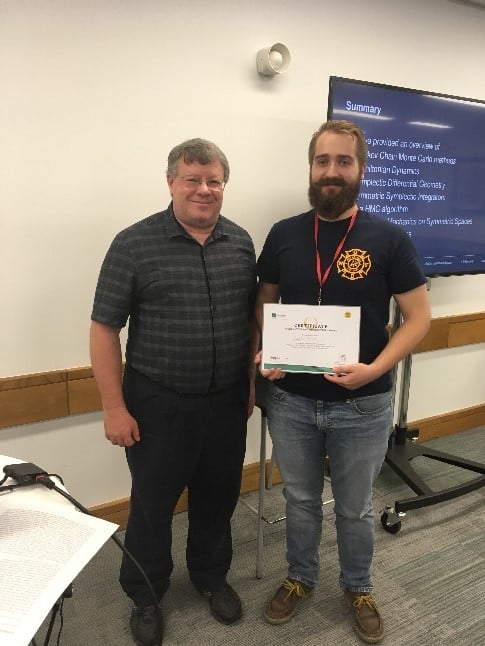Winner of the Entropy Best Paper Award at MaxEnt 2018—Sascha Ranftl
The editorial team of Entropy is happy to announce the winner of the Best Paper Award at the Max Ent 2018 conference, held in British Library, London, UK on 2–6 July 2018. The most outstanding paper was selected by an evaluation committee chaired by Prof. Emma McCoy.

The Editor-in-Chief of Entropy, Prof. Dr. Kevin H. Knuth (University at Albany, NY, USA), granted the certificate to the winner Mr. Sascha Ranftl (Graz University of Technology, Austria), whose work was titled “Bayesian Analysis of Femtosecond Pump-Probe Photoelectron-Photoion Coincidence Spectra”.
The awarded paper sheds light on the statistics of coincidence measurements, where a single electron is assigned to a single ion, both originating from the same ionization event. In combination with ultrafast lasers, this technique allows to understand the dynamics of molecules in the regime of femtoseconds. By employing Bayesian probability theory to deal with false coincidences, which an experimentalist cannot distinguish from true coincidences, the authors find significant impact on the analysis of the experimental data, and the interpretation of the underlying physical processes therefore.
Sascha Ranftl recently completed his Master’s Thesis, in the role of an experimentalist, in the femtosecond laser lab under the supervision of Prof. Markus Koch (Institute of Experimental Physics) and now enrolled in a PhD at the Institute of Theoretical and Computational Physics under the supervision of Prof. Wolfgang von der Linden. His current research interest concerns applications of Bayesian inference in the field of biomedical engineering, particularly computational biomechanics and the modelling and simulation of the life-threatening disease “aortic dissection”.
